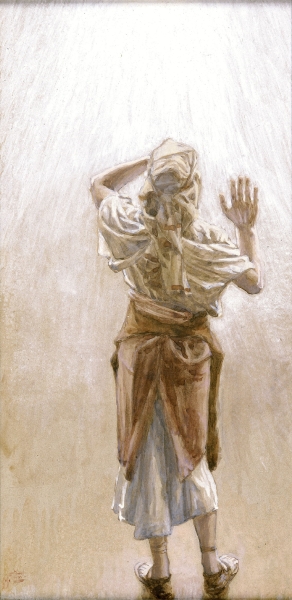Only two people in the book of Genesis are said to have called on the name of the LORD, Yahweh.1 Abraham called on the name of Yahweh at Bethel (Genesis 12:8), and then returned later to the same altar he had built there and called on the name of Yahweh again (Genesis 13:4). Then several years later, Abraham again called on the name of Yahweh at Beersheba (Genesis 21:33). This week in our Torah portion Tol’dot (Generations), we read that Isaac, after Abraham’s death, comes again to Beersheba where he builds an altar and calls on the name of Yahweh.
Then he went up from there to Beersheba. The LORD appeared to him the same night and said, “I am the God of your father Abraham; Do not fear, for I am with you. I will bless you, and multiply your descendants, for the sake of My servant Abraham.” So he built an altar there and called upon the name of the LORD, and pitched his tent there; and there Isaac’s servants dug a well (Genesis 26:23-25).
Why does Scripture say that Isaac “called upon the name of the LORD” after God has appeared to him and said “Do not fear?” According to many commentators, the Hebrew phrase indicates not to call on the name of the LORD, but rather to call in the name of the LORD. The Stone Edition of the Tanach translates this as “invoke the Name of HASHEM.” This is a solemn act of worship.
I love the LORD, for he heard my voice;
He heard my cry for mercy.
Because he turned his ear to me,
I will call on him as long as I live.
The cords of death entangled me,
The anguish of the grave came upon me;
I was overcome by trouble and sorrow.
Then I called on the name of the LORD:
“O LORD, save me!”
The LORD is gracious and righteous;
Our God is full of compassion.
The LORD protects the simplehearted;
When I was in great need, he saved me.
Be at rest once more, O my soul,
For the LORD has been good to you.
For you, O LORD, have delivered my soul from death,
My eyes from tears, my feet from stumbling,
That I may walk before the LORD in the land of the living.
I believed; therefore I said, “I am greatly afflicted.”
And in my dismay I said, “All men are liars.”
How can I repay the LORD
For all his goodness to me?
I will lift up the cup of salvation
And call on the name of the LORD.
(Psalm 116 1:13)
At the outset of this psalm, the Psalmist makes a declaration that lays a foundation upon which everything else will rest. In a somewhat personal and private discourse, he affirms his love and gratitude to the Holy One of Israel and then vows to serve Him for as long as he lives.
After describing his precarious position, at the end of the next two verses he again says that he “called on the name of the LORD.” The terminology that follows does not refer to any “enemies” as we read in many other Psalms. He speaks of something much more personal, perhaps of an illness or a state of mental or physical despair. “Cords of death,” “anguish,” “trouble and sorrow” have him bound. He “called on the name of the LORD,” whom he says delivered his soul from death.
Further along, he sings that he “will lift up the cup of salvation and call on the name of the LORD.” Given the probable time of composition for this Psalm, the “cup of salvation” is not likely a reference to any actual cup as might be used in a Seder or in Temple offerings. The “cup” is probably poetic language symbolizing abundance. The Hebrew is plural, and The Stone Edition renders this passage as “I will raise the cup of salvations and the Name of HASHEM I will invoke.”
Yeshua, the Salvation of Yahweh, said “I came that they may have life, and have it abundantly” (John 10:10). His gift is not a single event, as if we receive our promise of salvation and then wait to die. It is an abundant life, so that we “may walk before the LORD in the land of the living” as this Psalm describes.
Isaac received God’s promise; the same one given to his father, Abraham. Then he built an altar in the same place Abraham had been, and called on – invoked – the name of Yahweh like his father had done. He learned well from his heritage. Then he pitched his tent and dug a well. He was ready to “walk before the LORD in the land of the living” and enjoy his abundant life, just as the Psalmist would write later.
Several thousand years down the road, another man by the name of Isaac looked at the past and proclaimed his dependence on the God of Abraham, Isaac and Jacob as his “hope for years to come.” Let us do likewise, lifting our praise to the God who has brought us this far, and boldly going forward to walk before the LORD in the land of the living.
O God, our help in ages past,
Our hope for years to come,
Be Thou our guide while life shall last,
And our eternal home!
(Isaac Watts, 1674-1748)
1. There is also a general reference in Genesis 4:26, of which the meaning is debated.

